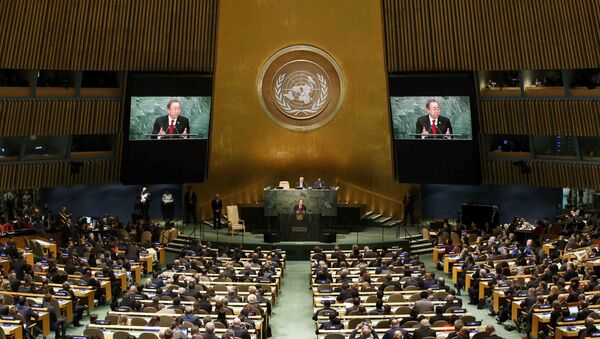The so-called "no first placement initiative" passed with 129 nations voting in favor. The United States, along with Ukraine and Georgia, voted against the measure, while European Union states abstained.
Washington has long opposed the resolution, arguing that it does not go far enough.
"It is noteworthy that the only government objecting to the substance of our initiative is the United States, which for many years has stood in almost complete isolation trying to block successive efforts of the international community to prevent an arms race in outer space," the Russian Foreign Ministry said in a statement posted on its website Tuesday.
Russia, China and the United States are all working on space weapons.
The United States criticized the measure ahead of a meeting last month in which Russia tried to advance the draft legislation to a vote.
US delegate Robert Wood said "the United States finds that Russia's NFP initiative contains a number of significant problems," specifically, that it does not adequately define space weapons.
"As a result, [nations] will not have any mutual understanding of the operative terminology," leaving the non-binding resolution difficult to enforce, or for compliance with the agreed-upon measures to be verified.
Washington also believes that the initiative has overlooked ground-based anti-satellite missiles like the type that have been tested by Russia, China and the United States.



